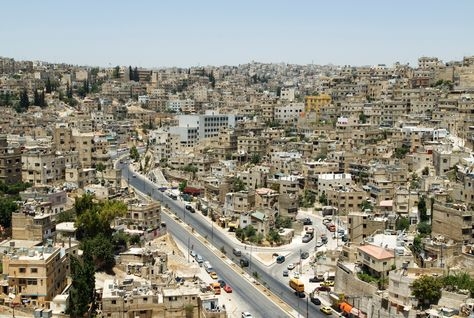The early August approval of a $2bn loan by the IMF to Jordan has once again brought the Kingdom’s financial concerns into the spotlight. However, the IMF was quick to point out most of the problems the economy faces come from external factors, and in particular the country’s reliance on foreign sources of energy, which is why much of the IMF’s money will be used to support a number of energy projects well under way.
The IMF’s loan comes in the form of a $2.06bn stand-by agreement to support the country’s 2012-15 economic programme. Some $385.35m will be made available immediately, while the balance will be phased in over the programme’s duration, subject to quarterly reviews.
In announcing the loan, the IMF made special note of the energy problems that beset the kingdom in 2011 and 2012. “Jordan is facing external and fiscal challenges stemming largely from exogenous shocks to its energy sector,” said Christine Lagarde, the IMF’s managing director and chairman. “These shocks have put pressure on the external accounts and increased the deficits of the central government and the public electricity company.”
At the moment, Jordan imports 80% of its energy needs and is highly dependent on natural gas imports from Egypt – a vulnerability that was brought sharply into focus after Egyptian saboteurs attacked the pipeline in Sinai during the events of the Arab Spring. Gas exports from Egypt to Jordan, which amounted to 220m cu feet per day in 2010, plummeted to 80m cu feet as a result.
This has caused a series of economic headaches for the Jordanian government. “It has taken the Egyptian government anywhere from one week to one month to get the gas flowing again,” said Mahmoud Al Aes, the director of the planning department at the Ministry of Energy and Mineral Resources. “The result is that we paid the largest-ever national energy bill in 2011 , totalling JD4.19bn ($5.89bn).”
While Egypt’s new president, Mohamed Morsi, has vowed to make pipeline protection an administration priority, even as it continues to deal with security concerns in the Sinai Peninsula, Jordan nevertheless is exploring other energy options. It has a number of investments in place to develop its domestic shale oil potential, though these are not expected to bear fruit until late 2015 or 2016.
The country is estimated to have more than 40bn tonnes of shale reserves, though some believe the figure may be closer to 100bn tonnes. Karak International Oil (KIO), a subsidiary of UK-based Jordan Energy and Mining (JEML), is spearheading the largest part of the oil shale initiative. KIO estimates its investments in the project will total some $1.8bn, while JEML has already invested around $30m.
Nuclear power is another long-term solution, though officials have stated 2019 is the earliest a proposed reactor would be available. Government plans to move forward with nuclear power have been met with a number of protests as well. Basel Burgan, the president of the Jordanian Friends of the Environment, claims that Areva, the France-based company that the government plans to partner with, may have underplayed environmental risks, while also pointing out the company plans to use a new type of nuclear power plant which has not yet been tested.
“This is a new model of a nuclear power plant designed for developing countries, which has not been built anywhere yet, nor has it been certified in France or anywhere else. In other words, it is a guinea pig model,” Burgan wrote in an editorial for The Jordan Times.
A number of other, less-controversial, projects are under way too. The World Bank has already extended a grant of $70m to help finance a $600m solar power plant in order to take advantage of the kingdom’s abundant sunlight. Private investment is also pursuing solar and other renewable sources. Indeed, since the Renewable Energy Law was passed in May, some 64 local and international firms have proposed wind and solar energy projects.
However, none of these projects will come on-line immediately, meaning Jordan’s energy supply will remain an issue for the next few years. The additional funds provided by the IMF, however, may help kick-start some of these programmes, thus allowing the country speedier access to a measure of energy independence.
Oxford Business Group
22 Aug







































































